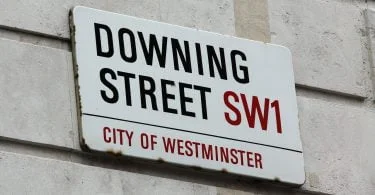Over the course of these political party conferences, there has been a similarity between the three party leaders.
Over the course of these political party conferences, there has been a similarity between the three party leaders. David Cameron, Nick Clegg, and Ed Miliband all have had the challenge of convincing party supporters that not only are they the right leaders to lead their party through to the next general election (and beyond), but the platforms are ones that can be supported.
As the Conservatives get the last of the political party conferences under way in Birmingham, Cameron, of all the leaders, has the biggest challenge. A poll in the 6th October edition of The Observer says Labour is ahead by eleven points. Additionally, for Cameron, the poll indicates he has a lower popularity rating compared to London Mayor Boris Johnson, who has been widely rumoured to succeeding Cameron as party leader.
Johnson has previously denied this but Cameron is quoted as saying he wants Johnson to move up to higher positions. “I have said to Boris: ‘Once you have done your job as London mayor, don’t think your job in politics is over.’ I think he has got a huge amount to offer, a huge amount to give and I encourage him to do that,” Cameron told the BBC’s Andrew Marr according to a report from The Guardian.
Johnson told BBC Radio 5 live that he is supporting Cameron and the government. “I think he’s doing a fantastic job,” Johnson said according to The Guardian. “It’s obviously self-evidently true that in 2005 I thought he was the man for the job and I didn’t think I was the man for the job and I rang him up and I talked to him so I think your listeners can take their conclusions from that.”
Johnson added that he wants to stay in his current role. “I’m conceding in my modest way that my function is to run London. I’m elected to do that, David Cameron is overwhelmingly the best man now, to lead the country, to clear up the mess that Labour left, and I think he is doing a bang-on job,” Johnson said. “Do I want to be prime minister? No, I want to be mayor of London, certainly for the next few years. After four years are up, heaven knows. I will be an old man.”
Going into the conference, there were a lot of questions that members of the public needed answers to, including on the mansion tax and if the party was going to be able to have public sector debt fall by 2015, as some experts have questioned whether it can be accomplished, according to a BBC report.
Speaking to Marr, Cameron said it was too early to say whether the target would be missed. Yet, Cameron said the Conservatives would need to be upfront with the public as regards to a further round of public sector cuts, these worth £16 billion, in 2015 and 2016. “We have to find these spending reductions and if we want to avoid cuts in things like hospitals and schools, services that we all rely on – we have to look at things like the welfare budget,” Cameron said according to a report of his remarks.
Cameron said however that he remained committed to not cut universal benefits for pensioners, and said that there was to be a freeze in council taxes in England for a third year in a row, the report adds.
Meanwhile, the mansion tax, in the view of Chancellor George Osborne, has been ruled out, rejecting a call made by the Liberal Democrats. “I don’t think the mansion tax is the right idea because I tell you before the election it’ll be sold to you as a mansion tax then after the election a lot of the people in Britain are going to wake up and find their more modest homes have been reclassified as a mansion,” Osborne told Sky News according to the BBC. “Nor do I think it’s sensible to have a wealth tax in the sense of a tax on your wealth levied annually. But I’m very clear that the rich will have to make a contribution to closing the budget deficit.”
There is one thing that is clear—the objective of the party going into the next general election. The party’s chairman, Grant Shapps, according to a report from The Guardian, told the conference that the Conservatives and the Liberal Democrats will not be joining forces together in the next election, and running as separate parties.
Before the election however, there are other questions which need to be answered. Can the Conservatives secure the trust of Britain in the face of declining polls and negative views from the public on policies? As MPs make their return to Westminster after the conference season ends this week, can the coalition work together in the face of differing issues? But, most important of all, can its leader convince the supporters of his party, and indeed the whole of Britain, that he is still the right man to be Prime Minister?
For David Cameron, these answers are essential to figuring the result to one specific question—whether or not he’ll keep his job at Number 10.








